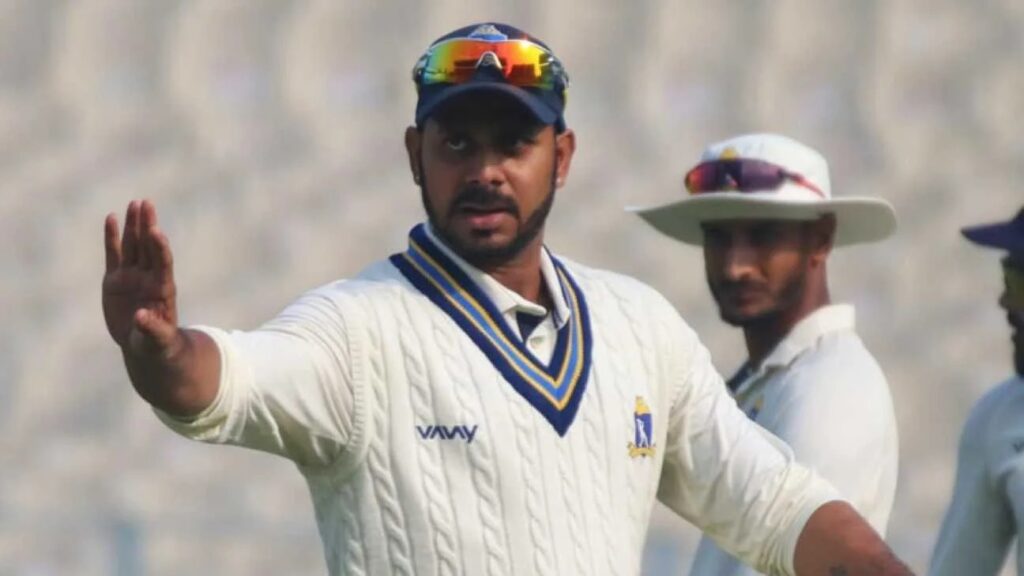Not all careers have to be covered in glory. Some of them can be memorable for the struggles and the player’s zeal to overcome them. Manoj Tiwary was one such cricketer, who kept proving himself despite not getting rewarded and kept going until he decided to walk away with his head held high.
I first saw him in a Bengal-Delhi Ranji One-day Trophy match (still to be named Vijay Hazare Trophy) at Eden Gardens in February 2004. It was his senior Bengal debut. Still to turn 19, he made an unbeaten 20-odd at No 7 and dismissed Gautam Gambhir. It was actually his fielding at point that made the biggest impression.
Bengal’s next match was against Rajasthan, at the Jadavpur University Salt Lake campus. Having an informal set-up those days, this venue allowed better access and a closer look at what the players did. There was a delay due to rain and I was seated near Laxmi Ratan Shukla. He pointed at a skinny boy and said, “Ye ladka khelega (this boy will go far).”
A few months short of 20 years since that day, when Tiwary decided to bid goodbye to playing, it can’t be said that his journey in international cricket took him very far. But it can be said with conviction that the man turning 38 in November was one the unluckiest players in modern Indian cricket.
Obstacles aplenty
An economically impaired childhood, injury at the worst possible time, an international debut without time for adequate preparation, long waits for future call-ups, match after match on the bench after an ODI hundred, not getting picked despite scoring in big games, getting shabbily treated by his home association — few suffered like Tiwary did.
Bad luck became his companion as soon as he entered the Indian dressing room. Part of the team touring Bangladesh in 2007, Tiwary was set to make ODI debut before fracturing his shoulder during fielding a day before the match. His next chance came against Australia in February 2008. He landed in Brisbane barely 48 hours before the match and was still to acclimatise when sent out to face Brett Lee.
THANK YOU 🙏 pic.twitter.com/xFWCJHSVka
— MANOJ TIWARY (@tiwarymanoj) August 3, 2023
Not part of the side for long periods, Tiwary kept himself ready and thought he would be getting a string of games after making 104 against the West Indies in 2011. But captain MS Dhoni and coach Duncan Fletcher kept persisting with Rohit Sharma and Suresh Raina in the next series in Australia. Both failed, but Tiwary remained on the bench. Things did not change after he made 65 and took four wickets in two ODIs against Sri Lanka later that year.
Master against spin
His batting was characterised initially by defiance. He was a complete batter in the domestic circuit, who could score against pace and spin. He was a terror for spinners and possibly the best of his generation when it came to playing inside-out shots. The timing was so good that the shot looked like a gentle chip, yet sailed over extra cover. Tiwary also had a range of sweeps including the reverse and was a quick runner between wickets. He had the traits, but something or the other went wrong when he looked set to make it. Opposition teams claim to have detected a weakness against pace later in his career, but Tiwary would not have made 9908 first-class runs at 48.56 had that been the case throughout.
Unfair treatment
Tiwary was unfairly treated. Batters he made way for contributed very little at times and he never got a fair run. Even the finest need a few games to get used to the differences between domestic and international cricket. Tiwary never got that. In the 2012-13 season, when England and Australia toured India, Tiwary made a 90-plus and a century against them in practice games. He still never made it to the 14 or 15 for the Test squad.
Treatment from the Cricket Association of Bengal (CAB) was also lukewarm at times. He was never a ‘yes man’ and was known as a player who spoke his mind when it came to the team. This made him a potential trouble maker for the administrators. A chief selector was against him as well. Despite leading the India U-19, Bengal U-19 and U-22 sides, he had to wait a long time before being given senior Bengal captaincy. It was taken away later and he had to serve as vice-captain when he was the captain of East Zone and India A.
The Ranji regret
His other regret would be not winning the Ranji Trophy after playing four finals. He was part of the Bengal teams which won the national one-day and T20 titles, led East Zone to a Deodhar Trophy win and hit the winning four for Kolkata Knight Riders in the 2012 Indian Premier League final. But he carried on playing even after becoming an MLA and minister because of the trophy he craved for.
Probably, he has come to terms with it and that’s why he has called it a day. There will be bitter feelings and good memories. At the end of it all, Tiwary should be proud of what he has done and where he has come from a one-room railway quarter where once lived a family of five.
Also Read: Manoj Tiwary announces retirement from all forms of cricket




